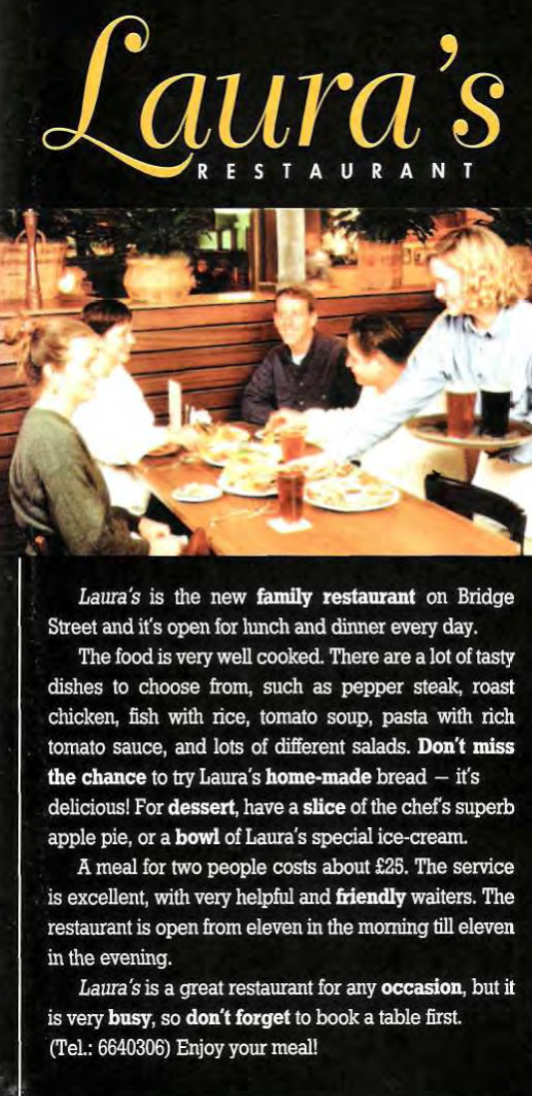Англійська мова (дистанційний курс): Урок 4 з циклу уроків з теми “Food and drinks”
Урок 4
Рекомендації
- Ознайомся з темою та метою уроку;
- уважно прочитай теоретичний матеріал;
- переглянь презентацію, яка містить цікавий додатковий матеріал;
- виконай практичні завдання;
- перевір свої знання за допомогою тестів.
Тема: Лексико-граматичний практикум. Кількісні займенники few, little, a few, a little.
Мета: повторити вивчені лексичні одиниці, познайомитись з новими граматичними структурами (few, little, a few, a little), тренувати учнів у вживанні нового граматичного матеріалу, навчитися ставити запитання, практично закріпити вивчені слова, розвивати самостійність, спостережливість, кмітливість, розвивати вміння переносу знань у нову ситуацію, мовну здогадку, пізнавальний інтерес, прищеплювати любов до праці, формувати критичне ставлення, виховувати почуття ввічливості, свідоме ставлення до навчання.
Словник термінів
Злічувальні іменники – це іменники, які можна порахувати.
Незлічувальні іменники – це іменники, які не можна порахувати.
Теоретичний матеріал.
|
FEW |
LITTLE |
A FEW |
A LITTLE |
|
few, little – перекладається на українську мову як мало (майже немає)
|
a few, a little - перекладається на українську мову як небагато, декілька |
||
|
Вживається зі злічу вальними (countable nouns) іменниками. |
Вживається з незлічувальними (uncountable nouns) іменниками. |
Вживається зі злічу вальними (countable nouns) іменниками. |
Вживається з незлічувальними (uncountable nouns) іменниками. |
|
Example: We have got few oranges in the fridge. (У нас мало) апельсинів у холодильнику) |
Example: They need little flour for the cake. (Їм потрібно мало борошна для пирога)
|
Example: We have got a few oranges in the fridge. (У нас небагато апельсинів у холодильнику) |
Example: They have a little flour for the cake. (Ми маємо небагато борошна для пирога) |
Практичні завдання
Task 1. Read and choose.
- We don’t need much/many strawberries for the fruit salad.
- There are a little/a few sugar in the packet.
- There aren’t some/any glasses in the cupboard.
- There is a lot/a few juice in the carton.
- How many/how much flour do we need?
- There are a little/a lot of tomatoes in the fridge.
- There are some/any jars of honey in the cupboard.
Task 2. Fill in some, any, much, many, a few or a little
A: Have we got what we need for the cheeseburgers?
B: Let me see. Well, there are 1) ______ burgers, but there aren’t 2) ______ rolls at all.
A: How 3) _______ rolls do you need?
B: Just 4) _______ . I need 5) ______ cheese, too.
A: How 6) _______ cheese is there in the fridge?
B: Not 7) ______ , but I only need 8) _______ .
A: Is there 9) _______ ketchup left?
B: Only 10) _______ , but we don’t need much, so don’t buy 11) _____ . We haven’t got 12) ______ mustard at all, though.
A: I’ll buy 13) _______ , then.
Task 3. Write words combinations with few or little.
- _________ b) _________ c) __________

d) __________ e)___________ f) ________

Task 4 . Look and write use little, few, a lot of.
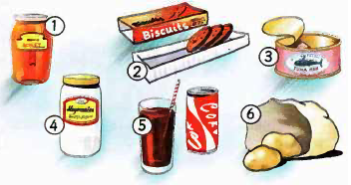
- There is ______ honey in the jar.
- There are ______ biscuits in the packet.
- There is ______ tuna in the can.
- There is ______ mayonnaise in the jar .
- There is _______ Coke in the glass .
- There are _______ potatoes in the bag .
Task 5. Complete the sentences with carrots, eggs, cheese, peppers, juice, tomatoes, milk, bananas, grapes.
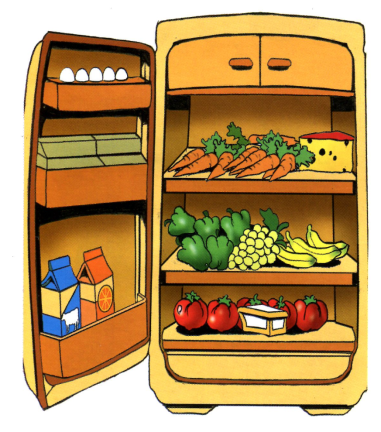
- There are a lot of ________ .
- There are a few _______ .
- There is a little ______ .
- There are a few _______ .
- There is a lot of ______ .
- There is a little ______ .
- There are a lot of _______ .
- There are few _______ .
- There are a lot of _____ .
Task 6. Put C for countable noun or U for uncountable noun.
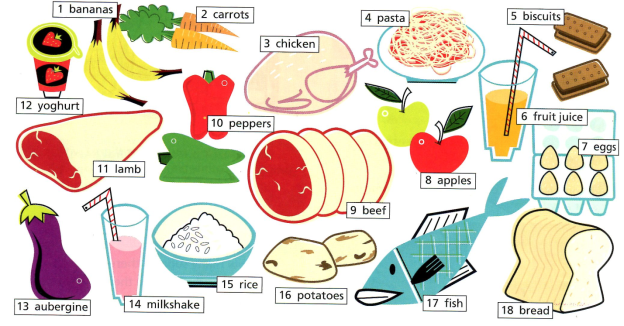
Task 7. Look at task 6 and write words in correct column.
|
Little |
Few |
|
|
|
|
|
|
|
|
|
|
|
|
|
|
|
|
|
|
|
|
|
|
|
|
Task 8. Read the text. Tick “+” the things she likes, tick “–“the things she doesn’t like.
In my family we eat lots of different things. I like fruit, and often eat apples and oranges. I also like vegetables, especially carrots. I don’t like eat fish, because I don’t like it. I don’t eat a lot of sweets but I drink a lot of milkshakes. I love chips, but I hate hamburgers, cheeseburgers and crisps. My favorite food is chicken and my favorite drink is chocolate milkshake.
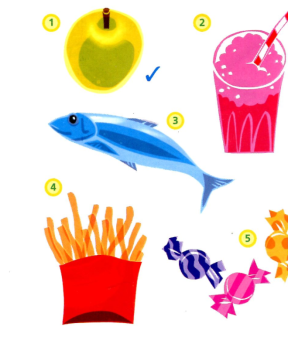
Test ( lesson 4)
- Cross out the odd word.
- sandwich b) lemonade c) juice d) milk
- Put the words in alphabet order.
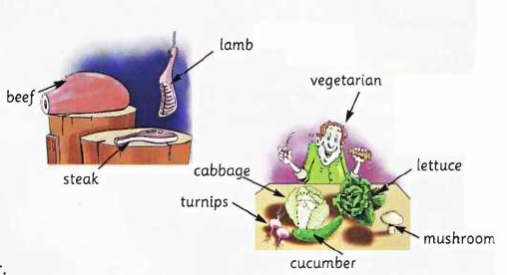
- Finish the sentence.
A little or little use with …….
- Few use with …..
- countable nouns b) uncountable nouns c) uncountable and countable nouns
- Match.
|
|
- Choose the words which use with a little or little.
- Milk b) bacon c) tomatoes d) sweets
- Choose the words which use with a few or few.
- Lemonade b) rolls c) cheese d) lemons
- Find the word combination with mistakes.
- a few milk
- little coffee
- few potato
- a little butter
- Fill in little or few.
- There is ……. cheese in the fridge.
- There is …….. sugar in my coffee.
- There are ……. apples in the apple pie.
- There are ……. eggs in the basket.
- Match.
|
|
- Match the two parts of the sentence to read the famous English proverb.
Better an egg today……
a) differ b) than a hen tomorrow. c) then cook him
- Read the text and put the sentences in correct order:
a) The restaurant is open from 11 a.m. till 11 p.m.
b) Don’t miss the chance to try home-made bread.
c) The food is very well cooked.
d) Laura’s is the new family restaurant.

про публікацію авторської розробки
Додати розробку

